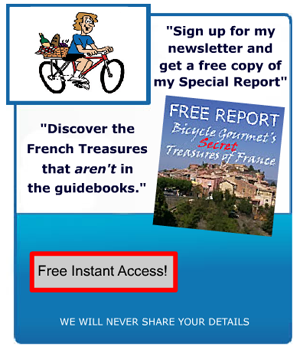While China is World renowned for producing ..ahem….shall we say “replicas” of trendy luxury goods, watches, perfume, luggage, etc. one of it’s not widely known activities is “re-inventing” French Wines. Usually (suprise, suprise) the most expensive ones.
This entreprenurial activity increased recently, after Euro trade honchos levied a tax on Chinese solar panels. While saying they don’t want a trade war, the Chinese hint – not so inscrutably – that European Wines may suffer the same fate.
Bad news for French Winos. But good news for the rogues who do the knock offs.
Our ever wine-vigilant pals at the Malaysian Insider have the inside:
— Bruno Paumard, the cellar master at a vineyard in China, can’t stop laughing while describing a bottle of supposedly French wine a friend gave him two years ago.
It’s white wine, with a label proclaiming it is from the vineyards of Romanee-Conti, the bottle bearing the logo that is on bottles of Chateau Lafite-Rothschild, and declares its origin as Montpellier in Southern France.
Domaine de la Romanee-Conti, better known for highly prized and highly priced vintages from France’s Burgundy region, makes only a tiny amount of white wine, labelled Montrachet. It has nothing to do with the equally prestigious Lafite, which is from the Bordeaux region, and neither brand is produced anywhere near Montpellier.
“It’s the most magnificent example of a hijacked brand of wine I’ve ever seen,” says Paumard, who works with Chateau Hansen in China’s Inner Mongolia. “It doesn’t get better than that.”
Liquor stores, restaurants and supermarkets in China, the world’s most populous nation and fifth-largest wine consumer, wage a constant battle against fake wines. The amount of knock-offs on the market may increase as Beijing investigates wine imports from the European Union, threatening anti-dumping tariffs or import curbs.
It announced the investigation after the EU slapped anti-dumping duties on Chinese solar panels.
“More expensive wine is okay, I just don’t want any fakes,” said Helen Nie, a Beijing housewife sharing a bottle of the Italian house white at a restaurant with a friend.
“If the cost goes up I’d still buy wine, though some people wouldn’t – the price makes a difference. But the quality is important; it’s a health question.”
EU wine exports to China reached 257.3 million litres in 2012 for a value of nearly US$1 billion (RM3 billion), more than a ten-fold increase since 2006 as rapidly increasing wealth transformed lives and tastes in the world’s fastest growing major economy. More than half of the 2012 total — 139.5 million litres — came from France.
Nobody knows how much of the market is cornered by fakes and copycats, says Jim Boyce, who follows China’s wine industry on his blog, grapewallofchina.com.
“Things that are faked tend to be things that are very popular,” Boyce said.
 Charles Gaudfroy, a manager of a French restaurant, compares the label of a fake Romanee-Conti (left), which was found at a wine shop in the southern part of China, with a genuine French red wine in Beijing June 6, 2013. — Reuters pic
Charles Gaudfroy, a manager of a French restaurant, compares the label of a fake Romanee-Conti (left), which was found at a wine shop in the southern part of China, with a genuine French red wine in Beijing June 6, 2013. — Reuters pic
And wine, especially expensive wine, is popular in China, sometimes more for bragging rights than taste.
“Those expensive wines are where you see more fakes,” said Maggie Wang, who was sharing the house wine from Sardinia at the Beijing restaurant with Nie.
“But there’s lots of phony wine. Everything’s faked in China,” she said. “For a lot of Chinese consumers, the more expensive it is, the more they’ll buy it. Chinese like things like that — they’ll buy the most expensive house, drive the most expensive car. They don’t want the best, they want the most expensive.”
Chateau what?
Given the high margins and the demand, the counterfeiters tend to focus on European fine wines.
The iconic Chateau Lafite has become the poster child for wine forgery. A bottle of Lafite from 1982, considered one of the greatest vintages of the 20th century, can cost upwards of US$10,000.
That has led to a thriving industry in Lafite knockoffs in China. Aficionados say there is are more cases of 1982 Lafite in China than were actually produced by the chateau that year.
Christophe Salin, president of Domaines Barons de Rothschild, which owns Lafite-Rothschild, says fake Lafite however isn’t the major problem.
“I have never seen a bottle of fake ‘82 Lafite,” says Salin, who has been travelling to China for 20 years.
“The problem we have is the creative attitude of some Chinese. They sometimes use our name in funny ways,” he told Reuters in a telephone call from Paris.
Several wines on the market are branded with names close to Chateau Lafite, including “Chatelet Lafite”. Chatelet is the name of one of the busiest subway stations in Paris.
Lafite “is such a generic brand in China that it has widespread appeal as a name and as a status symbol,” says Boyce.
The mystique extends beyond the wine — in Beijing there is a “La Fite British Exotic Bar” and the “Beijing Lafitte Chateau Hotel.”
The first step for anyone counterfeiting wine is to find or manufacture a bottle that is close to the original.
“People will also use real bottles with something else inside, or make labels that are spelled differently,” says Cheng Qianrui, wine editor for the Chinese lifestyle website Daily Vitamin. “If you know wines, you can tell, but not a lot of Chinese do.”
 Confiscated bottles of fake wines are destroyed by the police in Nanning, Guangxi Zhuang Autonomous Region November 6, 2011. — Reuters pic
Confiscated bottles of fake wines are destroyed by the police in Nanning, Guangxi Zhuang Autonomous Region November 6, 2011. — Reuters pic
Last year’s 10 per cent surge in wine imports over 2011 was led by Spain, which accounted for 36 per cent of cheaper bulk wine imports to China in 2012, according to Chinese customs figures. Bulk wine accounted for just under half of all wine imports last year.
The copyright problems however tend to focus on the better-known marques.
Read more HERE
THROW ME A BONE HERE,PEOPLE!
What are ya thinkin’?



